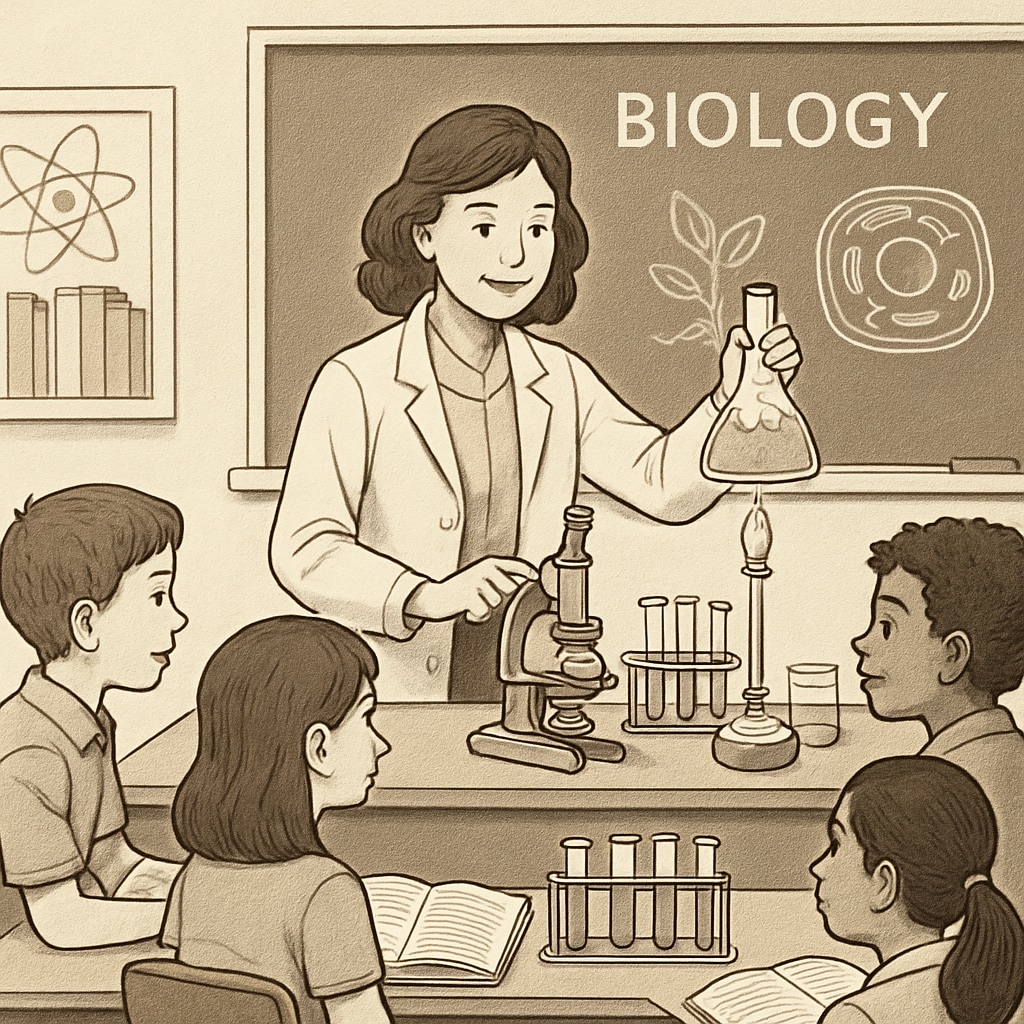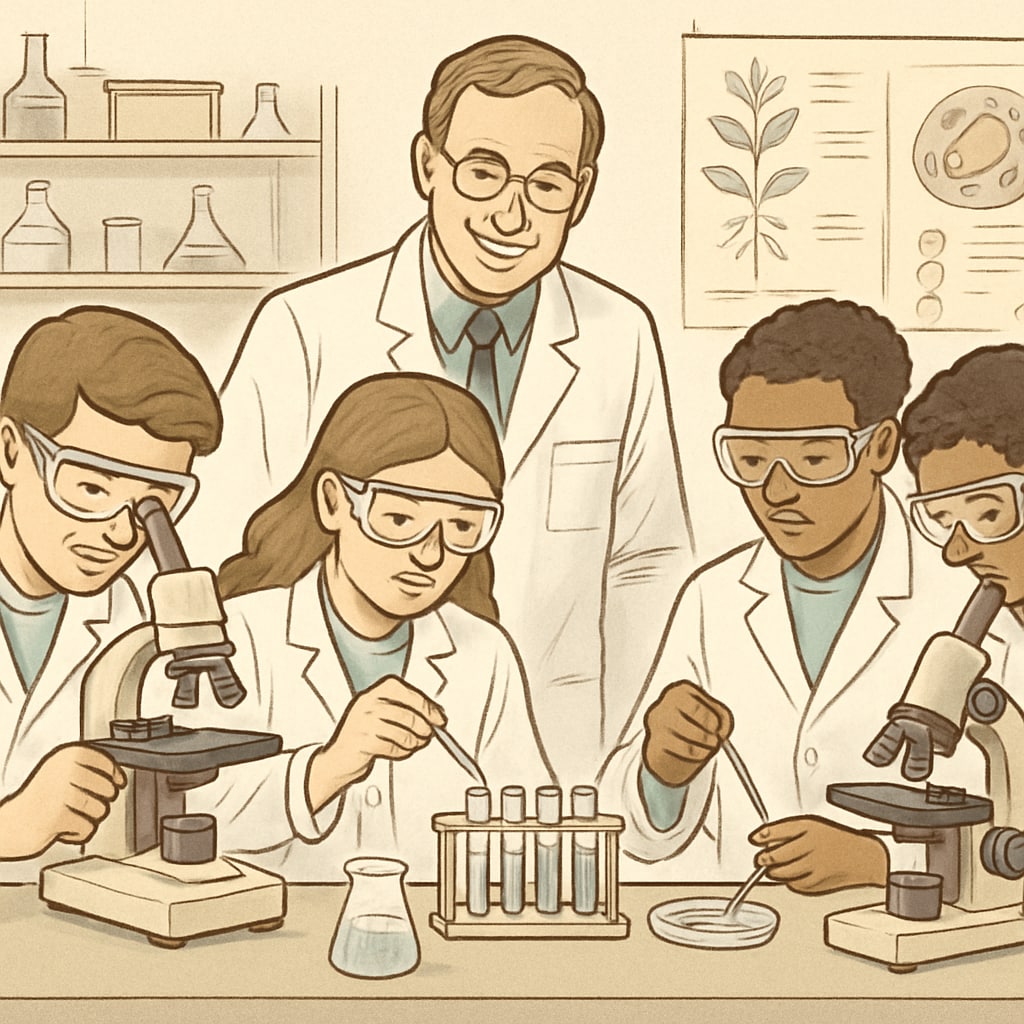Transitioning from a biology major to pursuing a master’s degree in education may seem like a leap across disparate disciplines. However, this “biology to education” pathway presents unique advantages and opportunities for those passionate about sharing knowledge and shaping young minds. While challenges such as academic adjustment and skill development may arise, the rewards of blending scientific expertise with teaching are immense. This article explores the feasibility, value, and strategies for biology students navigating this transformative journey.
Why Transition from Biology to Education?
For biology majors, the decision to transition into education often stems from a strong desire to make a difference in society. Education provides a platform to inspire curiosity, foster critical thinking, and nurture the next generation of problem-solvers. Moreover, the specialized knowledge gained in biology—ranging from cellular processes to environmental systems—can enrich science curricula in schools and help bridge gaps in STEM (Science, Technology, Engineering, and Mathematics) education.
According to a recent study by the Encyclopedia Britannica, there is a growing demand for STEM teachers globally, particularly in biology and chemistry. By transitioning to education, biology graduates not only address this gap but also bring fresh perspectives to teaching, combining academic rigor with real-world applications.

Challenges in Crossing Disciplinary Boundaries
Despite its benefits, transitioning from biology to education comes with challenges. One of the primary hurdles is adapting to pedagogy—a field that emphasizes communication, psychology, and instructional techniques. While biology majors are adept at analyzing data and conducting experiments, they may need to develop skills such as lesson planning, classroom management, and student engagement.
Additionally, the shift may require pursuing a master’s degree in education, which involves coursework in educational theories and methodologies. For students accustomed to laboratory environments, this transition may feel daunting. However, many universities offer tailored education programs for STEM graduates, providing a smoother learning curve.
Opportunities for Biology Majors in Education
Despite these challenges, the opportunities awaiting biology majors in education are significant:
- Specialized STEM Teaching Roles: With their scientific expertise, biology graduates are well-suited to teach advanced science courses, including AP Biology or environmental science.
- Curriculum Development: Many schools seek educators who can design interdisciplinary STEM programs, blending biology with mathematics, technology, and engineering.
- Leadership Opportunities: Beyond the classroom, biology educators can take on roles such as science department heads, curriculum specialists, or educational consultants.
Furthermore, teaching offers intrinsic rewards. Educators often cite job satisfaction from witnessing students grasp complex concepts and pursue careers inspired by their guidance.

Practical Strategies for a Successful Transition
For biology majors considering a shift into education, the following steps can facilitate a smooth transition:
- Research Education Programs: Look for master’s degree programs that cater to STEM graduates, offering specialized tracks in science education.
- Gain Teaching Experience: Volunteer as a tutor, mentor, or teaching assistant to develop classroom skills and confirm your passion for education.
- Leverage Biology Knowledge: Highlight your scientific expertise when applying for education roles, showcasing how your background can enhance student learning.
- Network with Educators: Join professional organizations, such as the National Science Teachers Association (NSTA), to connect with experienced educators and access resources.
By taking these steps, biology students can effectively navigate the academic and professional challenges of transitioning into education while maximizing their impact in the classroom.
Conclusion: The Value of Bridging Biology and Education
Transitioning from biology to education is not just feasible but also highly rewarding. By combining their scientific expertise with teaching, biology majors can play a critical role in addressing the growing demand for STEM educators. While challenges may arise in adapting to pedagogy, the opportunities to inspire and empower students outweigh these obstacles. For those passionate about learning and teaching, this interdisciplinary journey promises a fulfilling and impactful career.
In summary, crossing the boundaries between biology and education allows individuals to contribute meaningfully to both fields, fostering a lifelong love of science in young learners and building a brighter future for STEM education.


